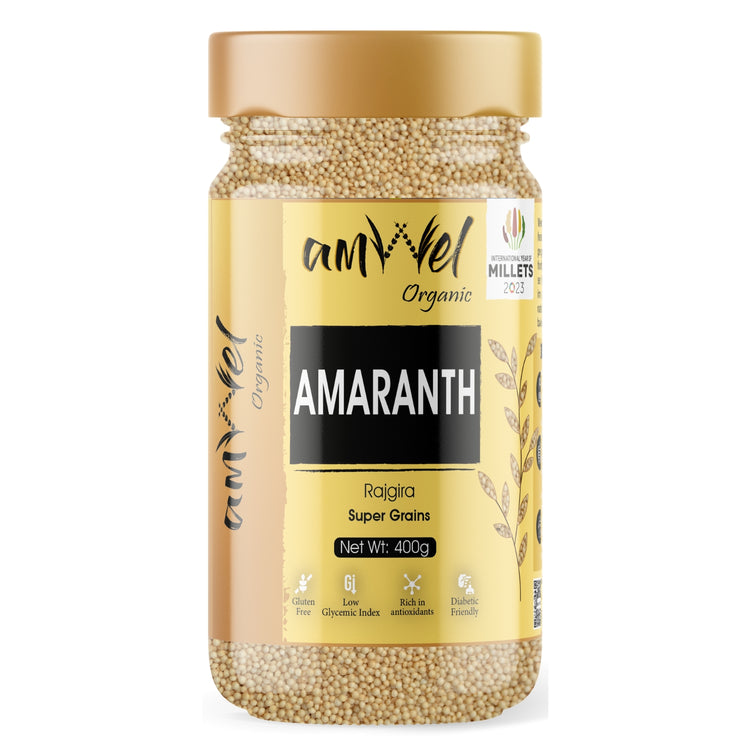
Amaranth is a versatile and ancient plant that has been cultivated for thousands of years for its nutritional and ornamental value. This plant belongs to the Amaranthaceae family and is known for its vibrant, colorful flowers and edible leaves, seeds, and stems. It has been a significant food source for various indigenous cultures throughout history.
The leaves of amaranth, commonly known as "Chinese spinach" or "callaloo," are rich in vitamins and minerals, making them a nutritious addition to various cuisines. The plant's seeds, often referred to as "amaranth grains," are small, round, and packed with protein, fiber, and essential amino acids. These seeds are gluten-free and have gained popularity as a nutritious alternative to grains like rice or wheat.
Beyond its nutritional value, amaranth has cultural significance and spiritual symbolism in many cultures around the world. Some consider it a symbol of immortality and longevity due to its ability to thrive in adverse conditions.
In modern times, amaranth's popularity has seen a resurgence due to its exceptional nutritional profile and adaptability to different climates. It is now recognized as a superfood and has found its way into various health-conscious diets, such as vegan, vegetarian, and gluten-free eating plans.
With its striking appearance, outstanding nutrition, and cultural significance, amaranth continues to be an intriguing and valuable plant both in agriculture and culinary exploration.
Amaranth offers several health benefits due to its rich nutritional profile. Here are some of the key benefits of including amaranth in your diet:
1. High Nutritional Value: Amaranth is a nutritional powerhouse, packed with essential vitamins and minerals. It contains significant amounts of calcium, iron, magnesium, phosphorus, potassium, and vitamins A, C, E, and K. Additionally, it provides an excellent source of protein, containing all nine essential amino acids, making it a valuable option for vegetarians and vegans.
2. Rich in Fiber: Amaranth is an excellent source of dietary fiber, both soluble and insoluble. Fiber aids digestion, promotes bowel regularity, and helps in maintaining a healthy gastrointestinal system.
3. Gluten-Free: For individuals with celiac disease or gluten sensitivity, amaranth is a safe and nutritious alternative to gluten-containing grains like wheat, barley, and rye.
4. Heart Health: Amaranth is known to be heart-healthy due to its high fiber content and the presence of phytosterols, which can help lower cholesterol levels. Additionally, its abundance of potassium supports healthy blood pressure levels.
5. Antioxidant Properties: Amaranth is rich in antioxidants, such as vitamin C, vitamin E, and phenolic compounds, which help neutralize harmful free radicals in the body and protect against oxidative stress and chronic diseases.
6. Supports Immune System: The vitamins and minerals present in amaranth contribute to a robust immune system, helping the body defend against infections and illnesses.
7. Weight Management: Amaranth's high fiber and protein content can help promote feelings of fullness, potentially aiding in weight management and reducing overall calorie intake.
8. Bone Health: The calcium and magnesium content in amaranth contribute to maintaining healthy bones and may help reduce the risk of osteoporosis.
9. Diabetes Management: Amaranth has a low glycemic index, which means it causes a slow and gradual increase in blood sugar levels. This characteristic can be beneficial for individuals with diabetes in managing their blood glucose levels.
10. Anti-Inflammatory Properties: Some studies suggest that amaranth may possess anti-inflammatory properties, which can be helpful in reducing inflammation-related issues.
It's essential to note that while amaranth provides numerous health benefits, it should be part of a balanced and varied diet. Including a variety of nutrient-rich foods in your meals can maximize the overall health benefits and contribute to a well-rounded nutrition plan. As with any dietary change, it's a good idea to consult with a healthcare professional or nutritionist if you have specific health concerns or conditions.
Little millet also known as sama ke chawal or kutki
It has so much to offer not only it helps in weight loss but also control the sugar levels which is perfect for the diabetic people Its high time to switch to millets.
Try this delicious tamarind rice recipe using little millet
1. Wash millets thoroughly and soak overnight.
2. For the special masala roast chana dal, urad dal, methi seeds, black pepper and dry red chillies
3. Cool them down and then blend to make a fine powder
4. To cook the millets heat water and add the soaked millets
5. Stir as in required
6. Cover and cook for 10 mins
7. Strain if there is water and allow the steam to make them fluffy
8. For the tadka heat oil in a kadhai
9. Add in mustard seeds, curry leaves and peanuts
10. Saute them well until done
11. Now add in the tamarind water / imli ka pani
12. As it comes to a boil add the special masala
13. Mix everything well add turmeric and salt
14. Add in the cooked millets
15. Toss them well
16. Let them sit for 5 mins before serving
https://youtube.com/shorts/stUeLncss4U?si=ZfcamJdM6i0uyMq-
Subscribe Now!
